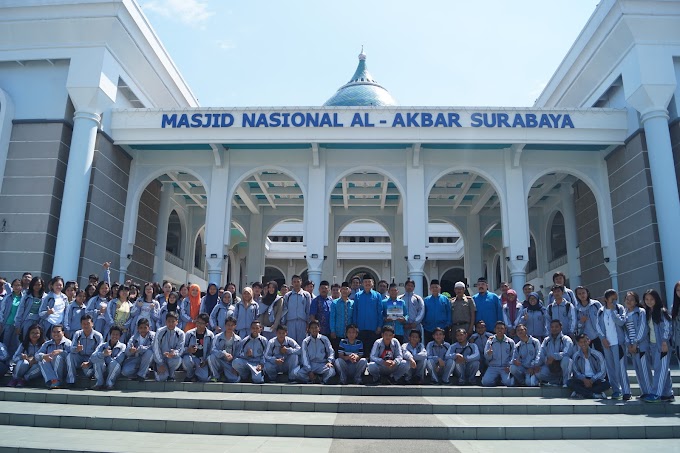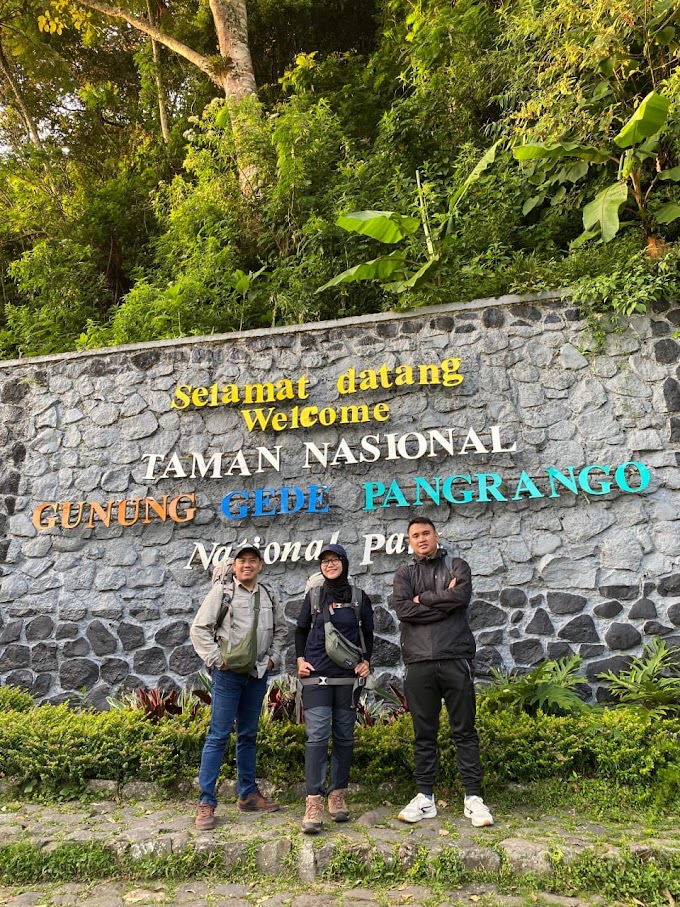The foundation of all human relations is hope. But hope is destined to be
broken, because hope usually comes from a finite human mind. Few are willing and
able to understand. Not one person meets the expectations of others perfectly
and that is the root of a conflict. Feelings in the arms of the arms of being
the only reason as well as the background of the emergence of a hope. The hope
is Indonesia. An archipelagic nation composed of a wide variety of tribes,
cultures, religions and customs. Amazed to see the reality that happened. The
difference that is generally the root of a problem becomes a very beautiful
unity with the difference itself. The beauty is engraved in terms Bhinneka
Tunggal Ika, different but still one. But that distinction will forever be a
latent danger, a danger that will explode at any moment and destroy
expectations.
Indonesia as a miniature of the world. Country with thousands of islands.
Its natural beauty and richness collaborate with the lofty social order of
society, mutual respect and respect. From mountain to sea, smiling face
anywhere as identity. Local politeness and wisdom should be respected and
upheld, not only for the local people but also for anyone visiting Indonesia,
interested in the beauty of Indonesia and loving Indonesia.
All people born in Indonesia are destined to be different and have
instincts that difference is a necessity. Not to be debated, but to be respected.
Differences are not to be questioned, but a means of getting to know each
other. Differences are not for uniformity, but they need to be put together in
order to be rhythmic. Bhinneka not to be divided, because united is much
stronger and beautiful. Smiling face in Bhinneka, because Indonesia is not only
Tunggal Ika.
Every event in life is a decision. When making decisions you always expect
advice, advice, help and consultation from others as the foundation. The
foundation for the future depends on the decisions made today. So whether the
future is the result of advice or advice of others? Is our whole life the
result of the intelligence of others? Experience has taught that different
people will give different advice. A devout heart will absorb the right advice
and a broken heart will absorb false advice. Accepting the right advice will
increase happiness, but to receive such advice may only be done by a devout
person. In other words, whoever the person is and whatever the position of
either the farmer or the president though, should before receiving advice or
advice from others is very important to prepare the heart with the truth for
the welfare of the people.
Any decisions taken will have good and bad impact. The impact will be felt
forever. The current decision can bring happiness or sadness in the future. Not
just for one person, but for a country and future generation after that. When a
person is faced with a dilemma, the heart becomes annoyed and filled with
indecision. When making a decision becomes a battle and the heart becomes a
battleground. When all that happens, decision-making is not just to find a
solution, but also to calm someone's heart. Can a heart in a state of chaos
make the right decision? In fact, when someone makes a decision with a calm
mind, he will surely have a happy future. But when a person makes a decision to
calm his or her own heart or the heart of the one who has contributed to him,
it will give him a variety of suffering and sadness in the future
Everyone is always trying to get a position in government. But what exactly
is the government? The true form of government is when a person can influence
his / her life. Someone who affects many lives of others and is able to give
freedom to many people will feel it. But is not that influence created from
love, kindness, caring and truth? When a person uses cruelty and mistake to
gain government, it will give rise to protests and resistance in the hearts of
others. And the result is destruction. He may find himself influential and resilient
for some time, but that is not an actual government.
Therefore, the concept of Javanese cultural power interpreted by Benedict
Anderson, "The Idea of Power in Javanese Culture", in Claire Holt
(ed), Culture and Politics in Indonesia (1972). He made a dichotomic
distinction between the concept of Western and Javanese power. According to
him, the concept of Western power is an abstraction that is deduced from social
relations that have diverse sources, such as technology, economic capacity,
welfare, so that the accumulation of power can be unlimited. The concept of
Java power is concrete, homogeneous, and fixed. Power comes from the same
source and can not be divided, can only move from one person to another through
the ritual of revelation.












2 Comments
wah, perlu koreksi grammarnya nih hehehe
ReplyDeletehttp://jurnalpai.uinsby.ac.id/index.php/jurnalpai/about/editorialTeam
ReplyDelete